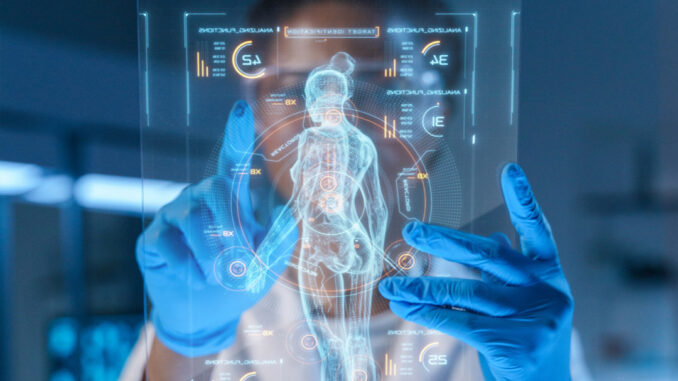
We have examined many factors that affect longevity in this column over the years, from lifestyle and dietary choices to studying some of the “blue zones” around the world, where they have the highest concentration of centenarians. However, in the last few months, many studies have been done to decipher whether AI (artificial intelligence) can influence our overall lifespans. And the answer is a resounding yes!
Now, if you’re like me, you might hear “AI” and automatically conjure up images from shiny futuristic scenes in which robotic people are taking over everyday human-driven tasks. That is just one type of “AI.” Artificial Intelligence is actually more loosely defined as a theory whereby computers can be trained to perform tasks as people do, by understanding language, decision-making and more. One branch of AI is known as machine learning (ML), and this is where longevity can be influenced. Machine learning is about acquiring data and creating algorithms, or instructions, by not only taking in information, but learning and improving its accuracy too.
If longevity researchers can work closely with AI to input data on aging and start pinpointing concrete factors that are contributing to people living longer, we could practically unlock the key to the fountain of youth!
The American National Institute on Aging (NIA) is looking at using AI capabilities to find these links in our lifestyles. Fewer than 1% of Americans live to the age of 100, they said, and it is believed that these centenarians – and similarly long-lived individuals – may have protective molecular factors that help reduce risk or delay the onset of age-related disabilities and diseases. Studying what is known as “exceptional longevity” could lead to the development of novel drugs and therapies based on these protective factors. They said, “NIA-supported studies of exceptional longevity and related research have begun to generate ‘multi-omics’ data sets that map the complex, multilayered interplay of genetics, metabolism, proteins and other variables. However, integrating multi-omics with imaging and clinical data makes for a substantial challenge. The twin technologies of artificial intelligence (AI) and machine learning (ML) can help human investigators sort, analyze and navigate these data much more swiftly and efficiently.” Source: Harnessing artificial intelligence to explore exceptional longevity, National Institute on Aging (nih.gov)
At MIT in Cambridge, Massachusetts, they have created an MIT AgeLab, a multidisciplinary research program that works with business, government and NGOs to improve the quality of life of older people and those who care for them. Bank of America and the MIT AgeLab are currently working together to advance the understanding of AI’s current impacts and to work on future applications and implications for longevity. They are all about looking at the ways in which AI will impact how we can have longer, better-quality lives.
There are still certain risks involved in putting our health care in the hands of AI. In a report released by Bank of America and the MIT AgeLab, they pointed out: “Technology developers must guard against the potential risks stemming from unchecked computer decision-making and bias. No matter how prevalent AI becomes, it will remain human beings who are responsible for determining its ends and its guiding values.” Source: AI and longevity (mit.edu)
But companies are still getting ready to start profiting from the early knowledge with which Artificial Intelligence is already being credited regarding aging. They are offering their own versions of “aging clocks” and biological age predictions based on AI’s “ability” to convert data into information.
I am by no means a medical professional, so I am neither endorsing nor discrediting these sorts of products and services. However, I think that AI has to advance a little bit further before I start letting a computer tell me when my time has run out! Nevertheless, it’s exciting to think that technology, which already helps us so much in our day-to-day lives, can also start to help advance science and health care so that we can live longer.
